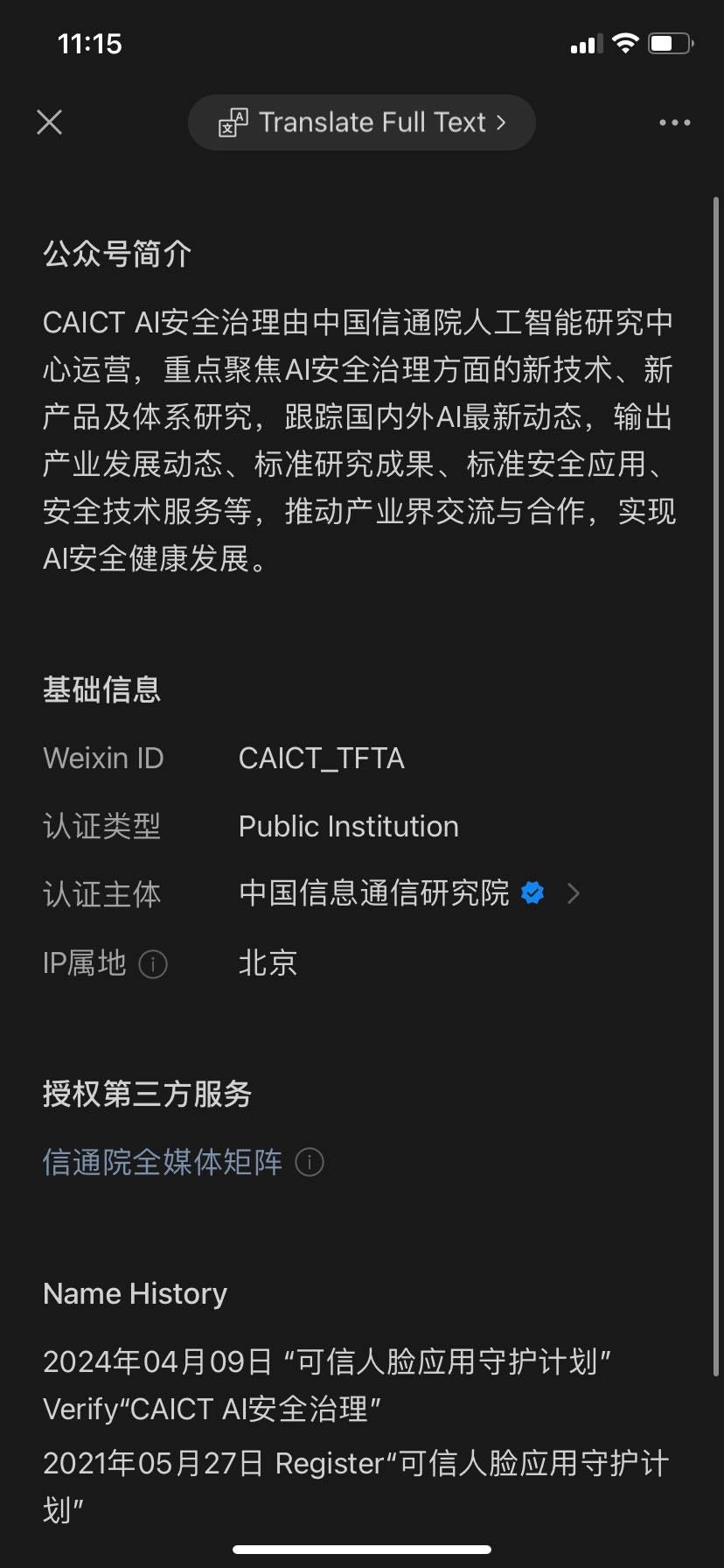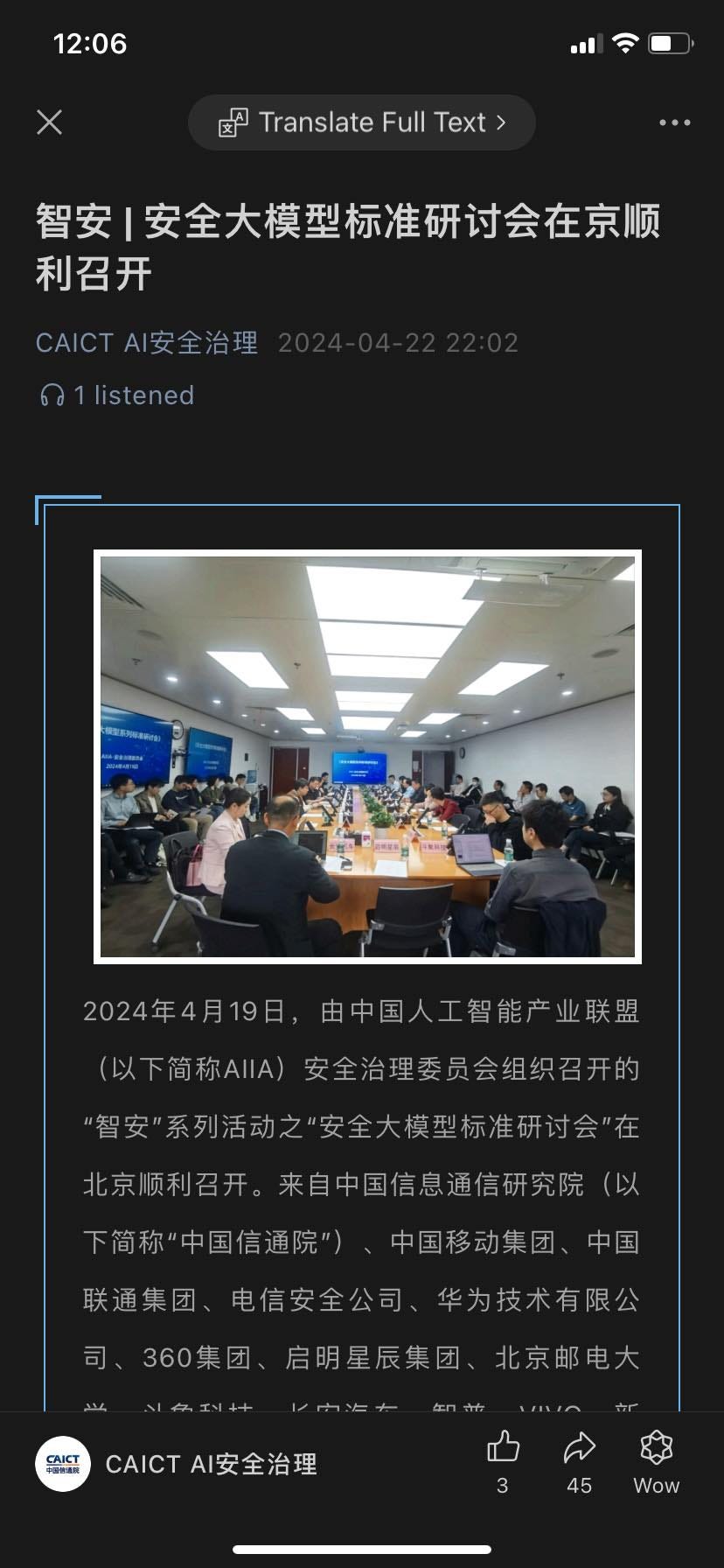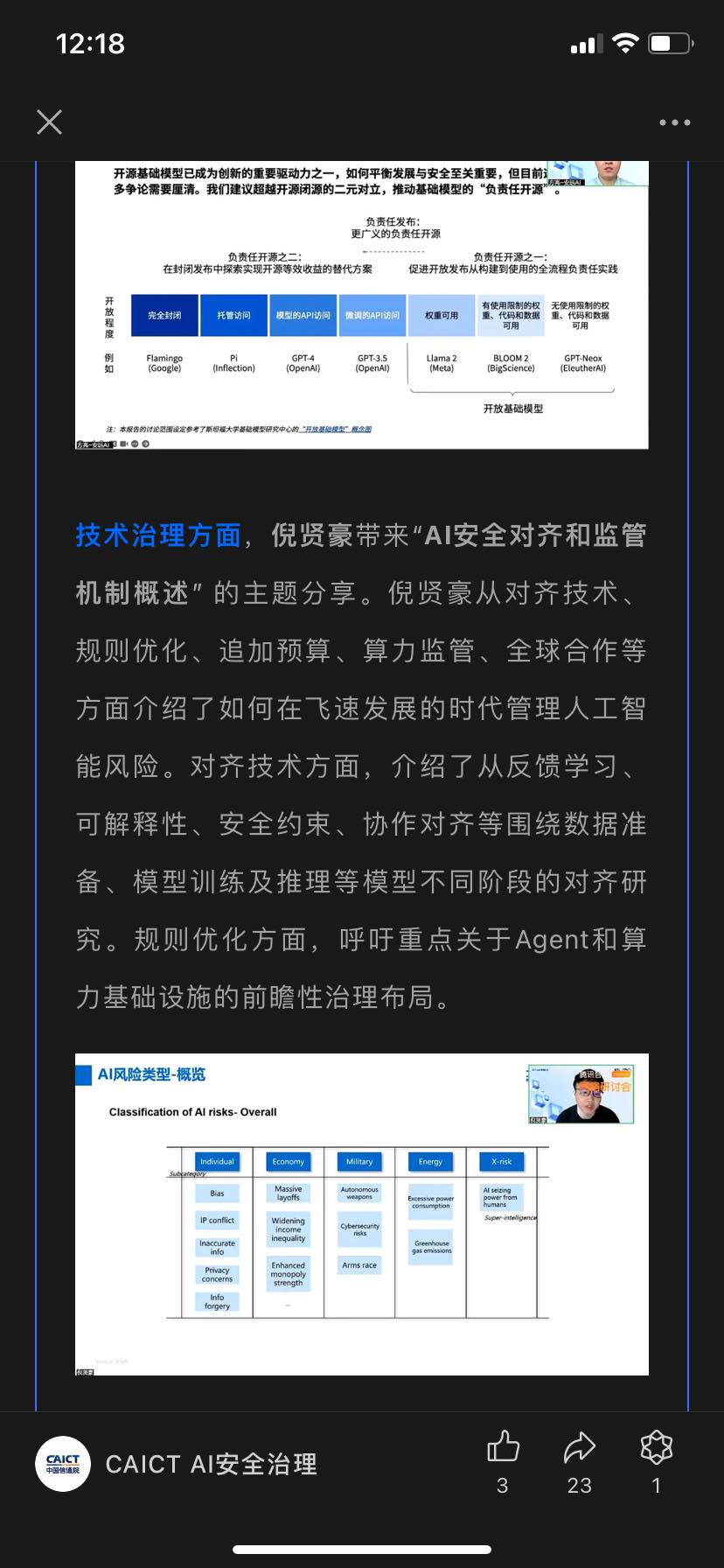Greetings from a world where…
Ba-ba-ba-ba-ba-basketball is back
…As always, the searchable archive of all past issues is here. Please please subscribe here to support ChinAI under a Guardian/Wikipedia-style tipping model (everyone gets the same content but those who can pay support access for all AND compensation for awesome ChinAI contributors).
Browsing CAICT's new AI governance WeChat public account
Context: Let’s switch things up a little this week. As I was scanning through WeChat public accounts [微信公众号] for ChinAI translations last week, I noticed that the China Academy of Information and Communications Technology (CAICT) had established a new account dedicated to AI safety/security governance. Last month, CAICT changed this portal’s name from “Trustworthy Facial (Recognition) Applications and Protections Plan”, which had been registered back in May 2021, to “CAICT AI Safety/Security Governance”[CAICT AI安全治理]. Note: CAICT is a government-affiliated think tank under China’s Ministry of Industry and Information Technology, which has staked out ground as a key player in AI governance (see ChinAI #261 on CACIT’s efforts to establish an authoritative large model AI safety benchmark).
Why is this notable? Public accounts of government-affiliated entities can help readers understand the latest government positions on certain topics, especially fast-evolving domains like AI governance. Susan Finder, who has been observing China’s Supreme People’s Court for 30+ years, keeps a list of law-related WeChat public accounts to keep track of how government authorities are reaching out to a public that consumes content on smartphones.
Put simply, trying to understand what is happening in China without following WeChat public accounts is like trying to study U.S. politics without the main platform used to access digital magazines, newspapers, and blogs. Back in 2017, there were over 10 million WeChat public accounts, with 797 million monthly active followers. By comparison, Twitter/X boasted ~556 million active monthly users as of 2023. There’s a lot of snake oil salesmen in this field; back in 2020 (ChinAI #92), I formalized one test based on WeChat public account usage to separate the wheat from the chaff:
"If you tell me you are an expert on China’s ___X___, you have to be able to list at least five Wechat public accounts focused on covering X that you follow regularly. If you can’t do that, I’m sorry, but you’re just not doing it right.
Key Takeaways: Okay, Jeffrey, can we please get to the content now? And try not to trip while getting off your soapbox. Let’s look at a few posts from CAICT’s new AI governance public account, to illustrate how much one can learn from keeping up with this portal.
April 22, 2024: CAICT and China AI Industry Alliance (AIIA) hold a joint seminar in Beijing on a draft technical standard: “Capability requirements and evaluation methods for cybersecurity of large AI models.” This post also announced that CAICT and AIIA would partner on a series of research outputs including white papers, reports, and standards on AI governance issues.
May 22, 2024: CAICT launches a “AI Guard” salon series on governing AI risks. Aim is to cultivate dialogues across industry and academic circles on these topics. Below is a slide presented by Beijing Academy of Artificial Intelligence researcher on AI risk classification. Note the far-right column is X-risk.
May 19, 2024: CAICT and Concordia AI [安远AI] analyze the International Scientific Report on the Safety of Advanced AI, commissioned by the UK government. Part of a joint column series by CAICT and Concordia AI that focuses on frontier AI risks, this detailed and lengthy post breaks down the key points from the report and also highlights report contributors from Chinese institutions.
Thank you for reading and engaging.
*More ChinAI links next week.
These are Jeff Ding's (sometimes) weekly translations of Chinese-language musings on AI and related topics. Jeff is an Assistant Professor of Political Science at George Washington University.
Check out the archive of all past issues here & please subscribe here to support ChinAI under a Guardian/Wikipedia-style tipping model (everyone gets the same content but those who can pay for a subscription will support access for all).
Also! Listen to narrations of the ChinAI Newsletter in podcast format here.
Any suggestions or feedback? Let me know at chinainewsletter@gmail.com or on Twitter at @jjding99







That CAICT public account looks like a treasure trove! What are some other WeChat public accounts that you find useful?